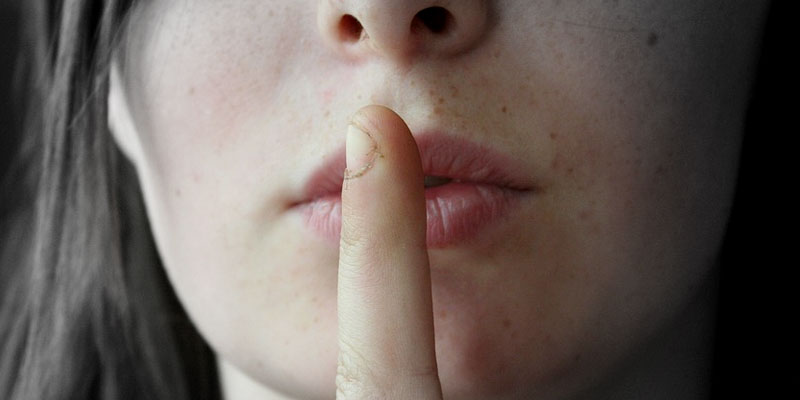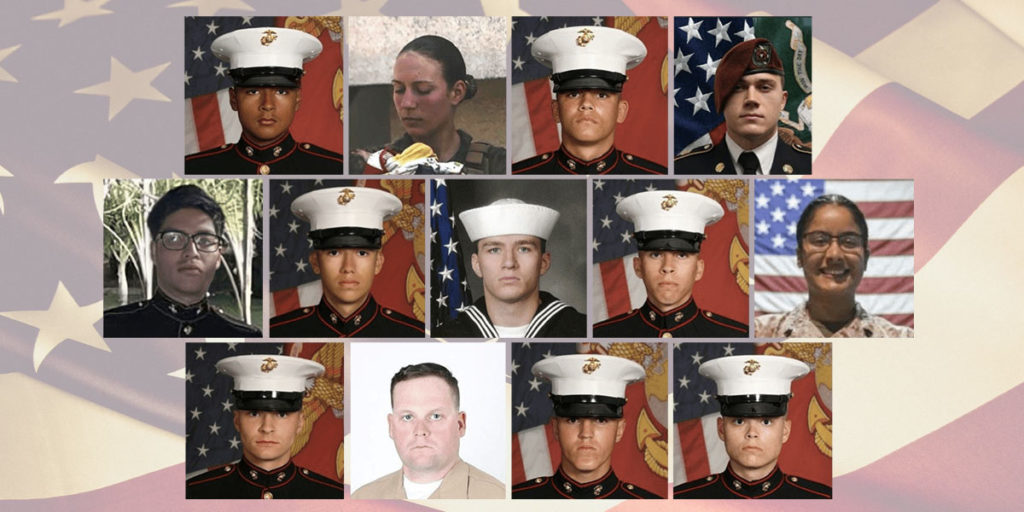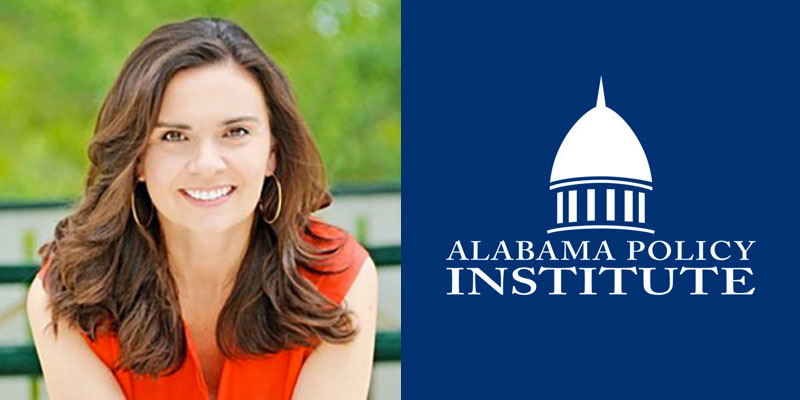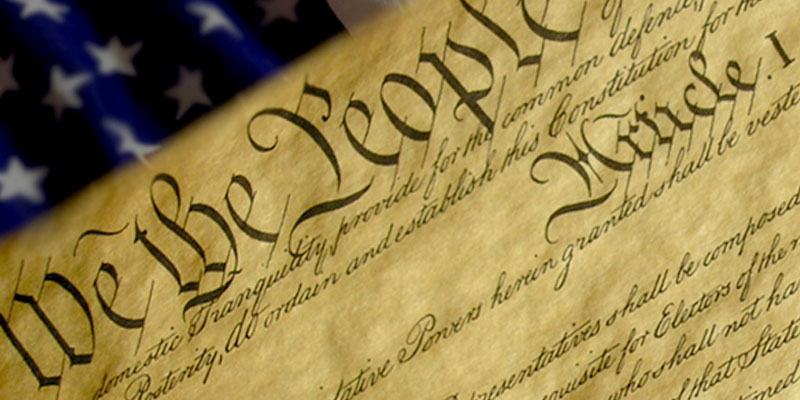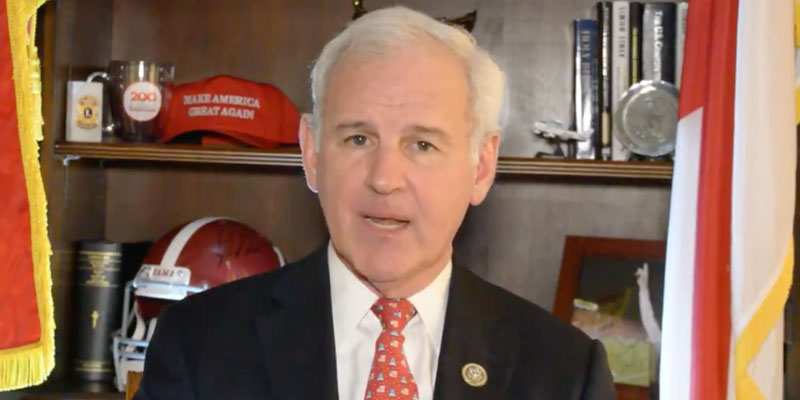The following is adapted from a speech delivered on December 12, 2017, at Hillsdale College’s Allan P. Kirby, Jr. Center for Constitutional Studies and Citizenship in Washington, D.C., as part of the AWC Family Foundation Lecture Series.
There is a lot of abstract talk these days on American college campuses about free speech and the values of free inquiry, with plenty of lip service being paid to expansive notions of free expression and the marketplace of ideas. What I’ve learned through my recent experience of writing a controversial op-ed is that most of this talk is not worth much. It is only when people are confronted with speech they don’t like that we see whether these abstractions are real to them.
The op-ed, which I co-authored with Larry Alexander of the University of San Diego Law School, appeared in the Philadelphia Inquirer on August 9 under the title, “Paying the Price for the Breakdown of the Country’s Bourgeois Culture.” It began by listing some of the ills afflicting American society:
Too few Americans are qualified for the jobs available. Male working-age labor-force participation is at Depression-era lows. Opioid abuse is widespread. Homicidal violence plagues inner cities. Almost half of all children are born out of wedlock, and even more are raised by single mothers. Many college students lack basic skills, and high school students rank below those from two dozen other countries.
We then discussed the “cultural script”—a list of behavioral norms—that was almost universally endorsed between the end of World War II and the mid-1960s:
Get married before you have children and strive to stay married for their sake. Get the education you need for gainful employment, work hard, and avoid idleness. Go the extra mile for your employer or client. Be a patriot, ready to serve the country. Be neighborly, civic-minded, and charitable. Avoid coarse language in public. Be respectful of authority. Eschew substance abuse and crime.
These norms defined a concept of adult responsibility that was, we wrote, “a major contributor to the productivity, educational gains, and social coherence of that period.” The fact that the “bourgeois culture” these norms embodied has broken down since the 1960s, we argued, largely explains today’s social pathologies—and re-embracing that culture would go a long way toward addressing those pathologies.
In what became perhaps the most controversial passage, we pointed out that cultures are not equal in terms of preparing people to be productive citizens in a modern technological society, and we gave some examples of cultures less suited to achieve this:
The culture of the Plains Indians was designed for nomadic hunters, but is not suited to a First World, 21st-century environment. Nor are the single-parent, antisocial habits prevalent among some working-class whites; the anti-‘acting white’ rap culture of inner-city blacks; the anti-assimilation ideas gaining ground among some Hispanic immigrants.
The reactions to this piece raise the question of how unorthodox opinions should be dealt with in academia—and in American society at large.
It is well documented that American universities today, more than ever before, are dominated by academics on the left end of the political spectrum. How should these academics handle opinions that depart, even quite sharply, from their “politically correct” views? The proper response would be to engage in reasoned debate—to attempt to explain, using logic, evidence, facts, and substantive arguments, why those opinions are wrong. This kind of civil discourse is obviously important at law schools like mine, because law schools are dedicated to teaching students how to think about and argue all sides of a question. But academic institutions in general should also be places where people are free to think and reason about important questions that affect our society and our way of life—something not possible in today’s atmosphere of enforced orthodoxy.
What those of us in academia should certainly not do is engage in unreasoned speech: hurling slurs and epithets, name-calling, vilification, and mindless labeling. Likewise we should not reject the views of others without providing reasoned arguments. Yet these once common standards of practice have been violated repeatedly at my own and at other academic institutions in recent years—and we increasingly see this trend in society as well.
One might respond, of course, that unreasoned slurs and outright condemnations are also speech and must be defended. My recent experience has caused me to rethink this position. In debating others, we should have higher standards. Of course one has the right to hurl labels like “racist,” “sexist,” and “xenophobic” without good reason—but that doesn’t make it the right thing to do. Hurling such labels doesn’t enlighten, inform, edify, or educate. Indeed, it undermines these goals by discouraging or stifling dissent.
So what happened after our op-ed was published last August? A raft of letters, statements, and petitions from students and professors at my university and elsewhere condemned the piece as racist, white supremacist, hate speech, heteropatriarchial, xenophobic, etc. There were demands that I be removed from the classroom and from academic committees. None of these demands even purported to address our arguments in any serious or systematic way.
A response published in the Daily Pennsylvanian, our school newspaper, and signed by five of my Penn Law School colleagues, charged us with the sin of praising the 1950s—a decade when racial discrimination was openly practiced and opportunities for women were limited. I do not agree with the contention that because a past era is marked by benighted attitudes and practices—attitudes and practices we had acknowledged in our op-ed!—it has nothing to teach us. But at least this response attempted to make an argument.
Not so an open letter published in the Daily Pennsylvanian and signed by 33 of my colleagues. This letter quoted random passages from the op-ed and from a subsequent interview I gave to the school newspaper, condemned both, and categorically rejected all of my views. It then invited students, in effect, to monitor me and to report any “stereotyping and bias” they might experience or perceive. This letter contained no argument, no substance, no reasoning, no explanation whatsoever as to how our op-ed was in error.
We hear a lot of talk about role models—people to be emulated, who set a positive example for students and others. In my view, the 33 professors who signed this letter are anti-role models. To students and citizens alike I say: don’t emulate them in condemning people for their views without providing a reasoned argument. Reject their example. Not only are they failing to teach you the practice of civil discourse—the sine qua non of liberal education and of democracy—they are sending the message that civil discourse is unnecessary. As Jonathan Haidt of NYU wrote on September 2 on his website Heterodox Academy: “Every open letter you sign to condemn a colleague for his or her words brings us closer to a world in which academic disagreements are resolved by social force and political power, not by argumentation and persuasion.”
It is gratifying to note that the reader comments on the open letter were overwhelmingly critical. The letter has “no counterevidence,” one reader wrote, “no rebuttal to [Wax’s] arguments, just an assertion that she’s wrong. . . . This is embarrassing.” Another wrote: “This letter is an exercise in self-righteous virtue-signaling that utterly fails to deal with the argument so cogently presented by Wax and Alexander. . . . Note to parents, if you want your daughter or son to learn to address an argument, do not send them to Penn Law.”
Shortly after the op-ed appeared, I ran into a colleague I hadn’t seen for a while and asked how his summer was going. He said he’d had a terrible summer, and in saying it he looked so serious I thought someone had died. He then explained that the reason his summer had been ruined was my op-ed, and he accused me of attacking and causing damage to the university, the students, and the faculty. One of my left-leaning friends at Yale Law School found this story funny—who would have guessed an op-ed could ruin someone’s summer? But beyond the absurdity, note the choice of words: “attack” and “damage” are words one uses with one’s enemies, not colleagues or fellow citizens. At the very least, they are not words that encourage the expression of unpopular ideas. They reflect a spirit hostile to such ideas—indeed, a spirit that might seek to punish the expression of such ideas.
I had a similar conversation with a deputy dean. She had been unable to sign the open letter because of her official position, but she defended it as having been necessary. It needed to be written to get my attention, she told me, so that I would rethink what I had written and understand the hurt I had inflicted and the damage I had done, so that I wouldn’t do it again. The message was clear: cease the heresy.
Only half of my colleagues in the law school signed the open letter. One who didn’t sent me a thoughtful and lawyerly email explaining how and why she disagreed with particular points in the op-ed. We had an amicable email exchange, from which I learned a lot—some of her points stick with me—and we remain cordial colleagues. That is how things should work.
Of the 33 who signed the letter, only one came to talk to me about it—and I am grateful for that. About three minutes into our conversation, he admitted that he didn’t categorically reject everything in the op-ed. Bourgeois values aren’t really so bad, he conceded, nor are all cultures equally worthy. Given that those were the main points of the op-ed, I asked him why he had signed the letter. His answer was that he didn’t like my saying, in my interview with the Daily Pennsylvanian, that the tendency of global migrants to flock to white European countries indicates the superiority of some cultures. This struck him as “code,” he said, for Nazism.
Well, let me state for the record that I don’t endorse Nazism!
Furthermore, the charge that a statement is “code” for something else, or a “dog whistle” of some kind—we frequently hear this charge leveled, even against people who are stating demonstrable facts—is unanswerable. It is like accusing a speaker of causing emotional injury or feelings of marginalization. Using this kind of language, which students have learned to do all too well, is intended to bring discussion and debate to a stop—to silence speech deemed unacceptable.
As Humpty Dumpty said to Alice, we can make words mean whatever we want them to mean. And who decides what is code for something else or what qualifies as a dog whistle? Those in power, of course—which in academia means the Left.
My 33 colleagues might have believed they were protecting students from being injured by harmful opinions, but they were doing those students no favors. Students need the opposite of protection from diverse arguments and points of view. They need exposure to them. This exposure will teach them how to think. As John Stuart Mill said, “He who knows only his own side of the case, knows little of that.”
I have received more than 1,000 emails from around the country in the months since the op-ed was published—mostly supportive, some critical, and for the most part thoughtful and respectful. Many expressed the thought, “You said what we are thinking but are afraid to say”—a sad commentary on the state of civil discourse in our society. Many urged me not to back down, cower, or apologize. And I agree with them that dissenters apologize far too often.
Democracy thrives on talk and debate, and it is not for the faint of heart. I read things every day in the media and hear things every day at my job that I find exasperating and insulting, including falsehoods and half-truths about people who are my friends. Offense and upset go with the territory; they are part and parcel of an open society. We should be teaching our young people to get used to these things, but instead we are teaching them the opposite.
Disliking, avoiding, and shunning people who don’t share our politics is not good for our country. We live together, and we need to solve our problems together. It is also always possible that people we disagree with have something to offer, something to contribute, something to teach us. We ignore this at our peril. As Heather Mac Donald wrote in National Review on August 29: “What if the progressive analysis of inequality is wrong . . . and a cultural analysis is closest to the truth? If confronting the need to change behavior is punishable ‘hate speech,’ then it is hard to see how the country can resolve its social problems.” In other words, we are at risk of being led astray by received opinion.
The American way is to conduct free and open debate in a civil manner. We should return to doing that on our college campuses and in our society at large.
(Reprinted by permission from Imprimis, a publication of Hillsdale College)




